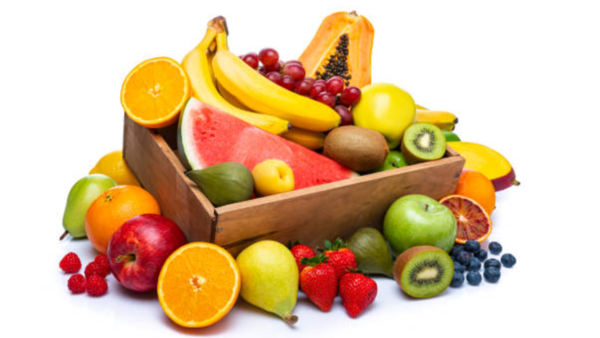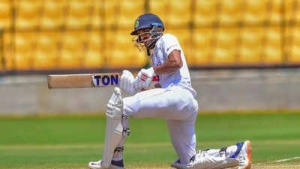Fruits are often debated in the context of a healthy diet, especially for individuals with or at risk of diabetes. A recent claim by a nutritionist suggested that consuming fruits on an empty stomach could heighten the risk of developing diabetes. However, Dr. Santhosh Jacob, an orthopedic and sports surgeon, challenges this notion, asserting that whole fruits can be beneficial.

Dr. Jacob clarifies that fruits, composed of approximately 80% water, alongside fructose, glucose, sucrose, and fiber, have a minimal impact on blood sugar levels when consumed whole. He explains that fructose is metabolized in the liver, sucrose breaks down into glucose and fructose, and the glucose is released slowly due to the presence of fiber. This controlled release prevents drastic spikes in blood sugar.
According to Dr. Jacob, consuming whole fruits typically results in only a mild increase in blood sugar levels, around 30 milligrams per deciliter over a two-hour period, before returning to normal. This makes whole fruits a safe option for individuals with diabetes, even when eaten on an empty stomach. Moreover, the fiber, polyphenols, and short-chain fatty acids present in fruits contribute to a healthy gut by nourishing beneficial bacteria.

The belief that eating fruit on an empty stomach is detrimental often arises from misconceptions about rapid gastric emptying and sugar absorption. Dr. Jacob emphasizes that while fruits are digested quickly, their fiber content prevents sudden spikes in blood sugar. He refutes the idea that fruit consumption can “wash out” gut bacteria, stating that only high alcohol intake, excessive antibiotics, or chemotherapy drugs could have such an effect.
Multiple meta-analyses support the consumption of whole fruits, approximately 250 grams daily, in reducing the risk of diabetes and metabolic disorders.

Dr. Jacob highlights the significant lifestyle factors that contribute to diabetes:
He concludes that whole fruits, packed with nutrients and fiber, can be beneficial for those aiming to manage or prevent diabetes.
Newer articles
Older articles
 'Ta Ra Rum Pum' Director's Tweet Fuels F1 Movie Comparisons, Ignites Fan Frenzy
'Ta Ra Rum Pum' Director's Tweet Fuels F1 Movie Comparisons, Ignites Fan Frenzy
 Prasidh Krishna Targets Sharper Bowling Lengths, Lower Economy Rate After Test Performance Review
Prasidh Krishna Targets Sharper Bowling Lengths, Lower Economy Rate After Test Performance Review
 NASA-ISRO successfully deploy world’s largest radar antenna in orbit; a milestone in Earth observation
NASA-ISRO successfully deploy world’s largest radar antenna in orbit; a milestone in Earth observation
 New York Assemblyman Zohran Mamdani's Style Guide: 5 Fashion Tips for the Modern Man
New York Assemblyman Zohran Mamdani's Style Guide: 5 Fashion Tips for the Modern Man
 Duleep Trophy semifinals: Ruturaj Gaikwad scores crucial ton for West Zone, sends strong message to selectors
Duleep Trophy semifinals: Ruturaj Gaikwad scores crucial ton for West Zone, sends strong message to selectors
 Rishabh Pant's Fearless Batting Style Hailed by Greg Chappell as Game-Changing: Ex-India Coach Compares Him to Gilchrist After Twin Centuries vs. England
Rishabh Pant's Fearless Batting Style Hailed by Greg Chappell as Game-Changing: Ex-India Coach Compares Him to Gilchrist After Twin Centuries vs. England
 Samantha Ruth Prabhu's Throwback Thursday: Actress Shares Rare Teenage Photo
Samantha Ruth Prabhu's Throwback Thursday: Actress Shares Rare Teenage Photo
 Blackcaps to Face Packed International Schedule: Australia, England, West Indies, and South Africa to Tour New Zealand
Blackcaps to Face Packed International Schedule: Australia, England, West Indies, and South Africa to Tour New Zealand
 Royal Challengers Bengaluru Dethrone Chennai Super Kings as IPL's Most Valuable Franchise
Royal Challengers Bengaluru Dethrone Chennai Super Kings as IPL's Most Valuable Franchise
 Prithvi Shaw Admits to Losing Focus, Wrong Friends Led to Cricket Career Setback
Prithvi Shaw Admits to Losing Focus, Wrong Friends Led to Cricket Career Setback